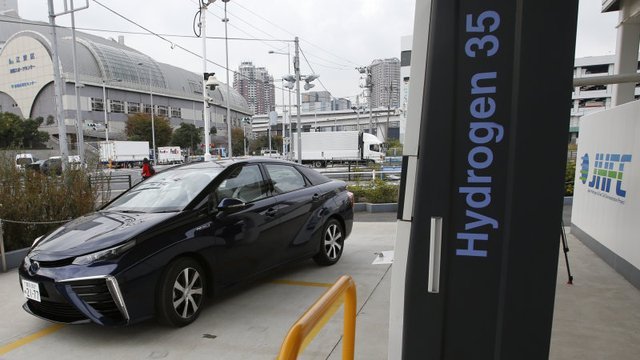Tokyo Wants 6k Fuel-Cell Cars from Toyota and Honda for 2020 Olympics

The push could jump start sales of hydrogen fuel cell vehicles (FCEVs) in the metropolis and would portray the Asian country as a leader in the cutting-edge tech.
The city is setting aside 45.2 billion yen ($385 million) to offer subsidies for people buying FCEVs and to build 35 hydrogen refueling stations to keep them going, according to Bloomberg. The local government is in talks with Toyota and Honda to have 6,000 fuel cell vehicles on the road in time for the games. These generally expensive factors are often considered some of the biggest hurdles for the alternative fuel to take hold.
Beyond the 2020 games, the Tokyo government has even more aggressive plans for the alternative fuel. The city's audacious goal is to have 100,000 FCEVs, 100 hydrogen-fueled buses and 80 refueling stations in the capital by 2025, according to Bloomberg.
The city wants to offer FCEV buyers incentives as much as about 3 million yen ($25,325) with a third of that money coming from the Tokyo government and the rest from the national government, according to Bloomberg. Furthermore, subsides on building refueling stations could be as high as 80 percent in Tokyo, which puts costs more in line with building a traditional gas station.
It appears that the demand is already building to make Tokyo's goal a reality. Toyota has received around 1,500 orders for the Mirai, according to Bloomberg. Although, the majority have come from the country's government or fleets. To meet the higher-than-expected demand, the automaker expanded its production facilities by adding two more assembly lines. The launch of Honda's latest FCEV was recently pushed back until March 2016, a year later than originally expected.
Related News


